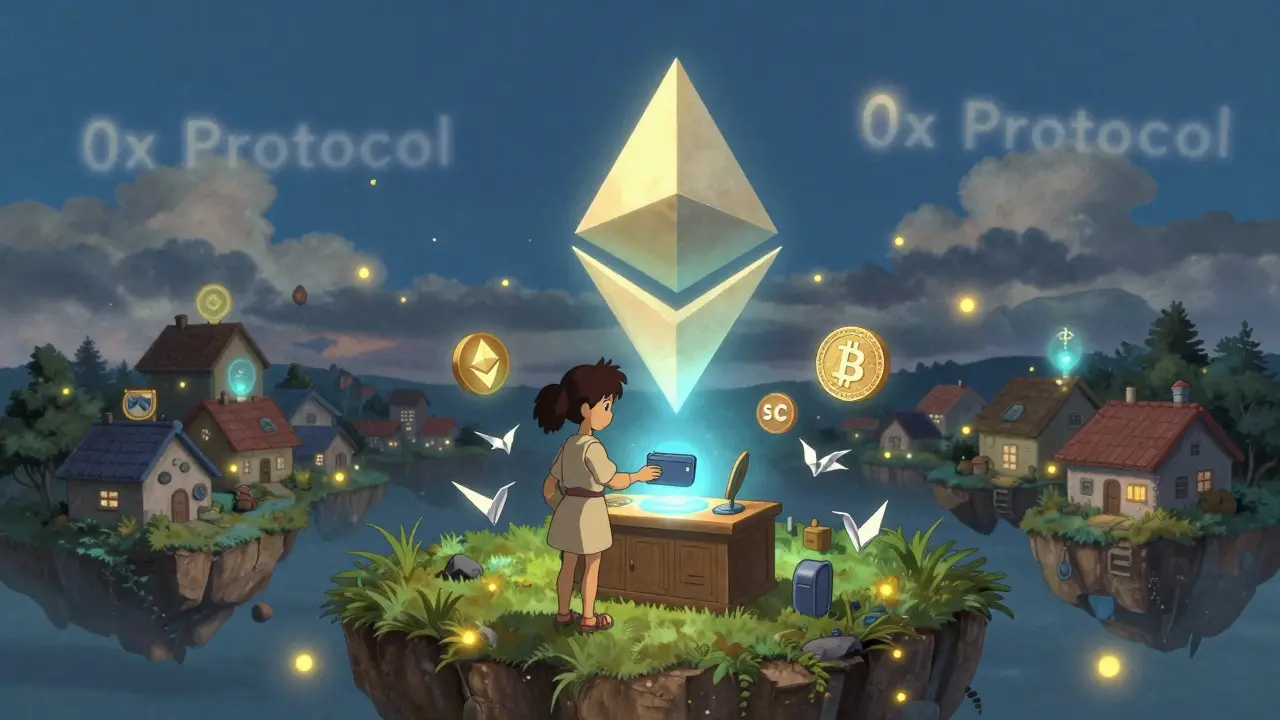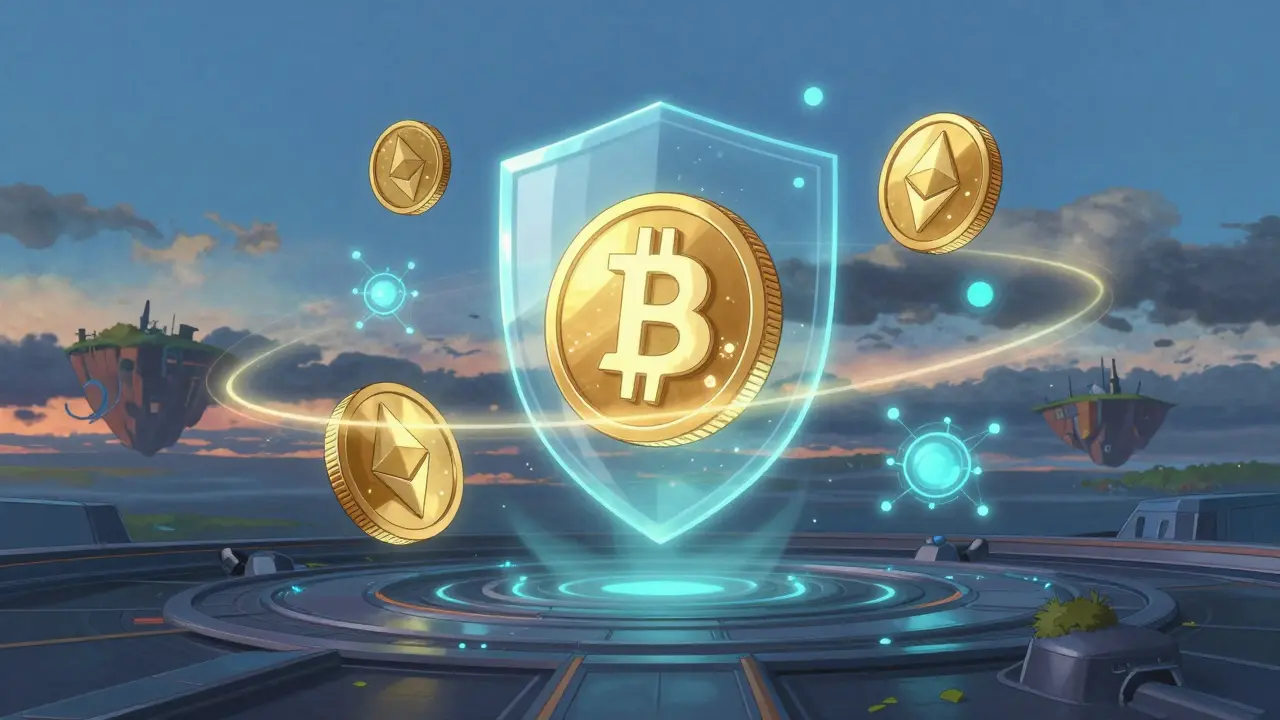Cryptocurrency Exchanges – Reviews, Safety Tips & How to Pick the Right Platform
When working with Cryptocurrency Exchanges, online services that let you buy, sell, or swap digital assets. Also known as crypto exchanges, they serve traders, investors, and developers who need to move value across blockchain networks. Cryptocurrency Exchanges encompass both centralized platforms and decentralized exchanges, and they require you to balance speed, cost, and security. Understanding the core parts of an exchange helps you avoid scams, keep fees low, and protect your holdings.
One major sub‑type is the Decentralized Exchange, a peer‑to‑peer marketplace that runs on smart contracts without a central authority. DEXs let you retain full control of your wallet, but they often have lower liquidity and a steeper learning curve. Another key factor is Exchange Fees, the charges applied to deposits, withdrawals, and each trade. Low fees can boost your net returns, yet some platforms hide costs in spreads or withdrawal limits, so always compare the fee schedule before committing. Finally, Exchange Security, the set of measures like two‑factor authentication, cold storage, and insurance that protect user funds is non‑negotiable; a single breach can erase years of savings. Choosing an exchange therefore requires assessing security, fee structure, and the type of market (centralized vs. decentralized) that matches your trading style.
What to Look for When Picking an Exchange
First, verify that the platform complies with regulations in the jurisdictions you operate. Regulatory compliance influences the range of services, limits on deposit size, and the availability of fiat on‑ramps. Second, evaluate the user interface – a clean dashboard saves time and reduces mistakes, especially when you’re juggling multiple tokens. Third, check the breadth of supported assets; a diverse listing lets you explore emerging projects without hopping to another site. Fourth, read community reviews and independent audits; real‑world feedback often reveals hidden latency, withdrawal bottlenecks, or customer‑support delays. Lastly, run a small test deposit to gauge transaction speed and confirm that withdrawal procedures work as advertised. By stacking these checkpoints, you create a safety net that lets you focus on strategy rather than platform quirks.
Below you’ll find in‑depth reviews of popular exchanges, from mainstream names to niche DEXs. Each article breaks down features, safety checklists, fee tables, and real‑world performance, giving you the facts you need to decide which platform fits your goals. Dive into the collection to see how each exchange measures up on security, cost, and usability, and use the insights to craft a trading setup you can trust.
BTSE Crypto Exchange Review: Features, Fees, and Whether It's Right for You
BTSE is a high-leverage crypto exchange built for experienced traders. With 100x leverage, multi-asset collateral, and lightning-fast execution, it's a top choice for derivatives traders - but not for beginners or those who need regulatory safety.
Bamboo Relay Crypto Exchange Review: What It Is, How It Works, and If It’s Still Relevant in 2026
Bamboo Relay is a decentralized crypto exchange built on Ethereum with margin trading and credit card on-ramps. But in 2026, it's stagnant. Here's what still works, what doesn't, and where to go instead.
Coinflare Crypto Exchange Review: Features, Fees, and Is It Right for You?
Coinflare is a crypto exchange focused on high-leverage perpetual swaps with low fees and fast execution. It's ideal for experienced traders but lacks a mobile app as of 2026.
Echobit Crypto Exchange Review: Speed, Security, and Leverage for Advanced Traders
Echobit crypto exchange offers lightning-fast trading, up to 125x leverage, and advanced MPC-TSS security - ideal for experienced traders. But it lacks insurance, audits, and beginner support.
Armoney Crypto Exchange Review: What You Need to Know About BTC Armani Nova and Harmony (ONE)
Armoney isn't a real crypto exchange - it's a mix-up between the scammy BTC Armani Nova and the struggling Harmony (ONE) blockchain. Learn what's real, what's fake, and where to trade safely in 2026.
YFX Crypto Exchange Review: What You Need to Know in 2026
YFX is a decentralized perpetual contract protocol offering up to 100x leverage on crypto assets. It's technically innovative but lacks liquidity, team transparency, and token utility. Not recommended for beginners or long-term use.
XueBi Crypto Exchange Review: Risks, Features, and Why It’s Not Safe for Most Users
XueBi crypto exchange lacks regulatory oversight, security transparency, and user reviews. Learn why this unverified platform poses serious risks and which safer alternatives to use instead.
IceCreamSwap (Core) Crypto Exchange Review: Small DEX with Big Risks
IceCreamSwap (Core) is a tiny decentralized exchange built for Core Chain with almost no trading volume or user reviews. It's not a scam-but it's not safe for serious trading either.
LocalTrade Crypto Exchange Review: Risks, Fees, and Why Most Traders Avoid It
LocalTrade crypto exchange claims low fees and wide coin support, but lacks regulation, has fake trading volume, and is flooded with user complaints. Avoid this unregulated platform and choose a safer, verified exchange instead.
ProBit Global Crypto Exchange Review: No KYC, 500+ Coins, and Zero Hacks
ProBit Global is a no-KYC crypto exchange with 500+ altcoins, zero hacks since 2017, and spot trading only. Ideal for privacy-focused traders seeking emerging tokens not found on Binance or Coinbase.
DYORSwap (Sonic) Crypto Exchange Review: Is It Worth Using in 2026?
DYORSwap is the only DEX for SONIC tokens on the Sonic blockchain, but with only $290 in daily volume and a broken onboarding process, it's not practical for most traders. Learn why it's risky and who should avoid it.
bitFlyer Crypto Exchange Review: Best for Beginners, Limited for Traders
bitFlyer is one of the safest crypto exchanges with a 7-year hack-free record, ideal for beginners who prioritize security over coin variety. Limited to 11 cryptocurrencies and weak customer support make it less suitable for active traders.











